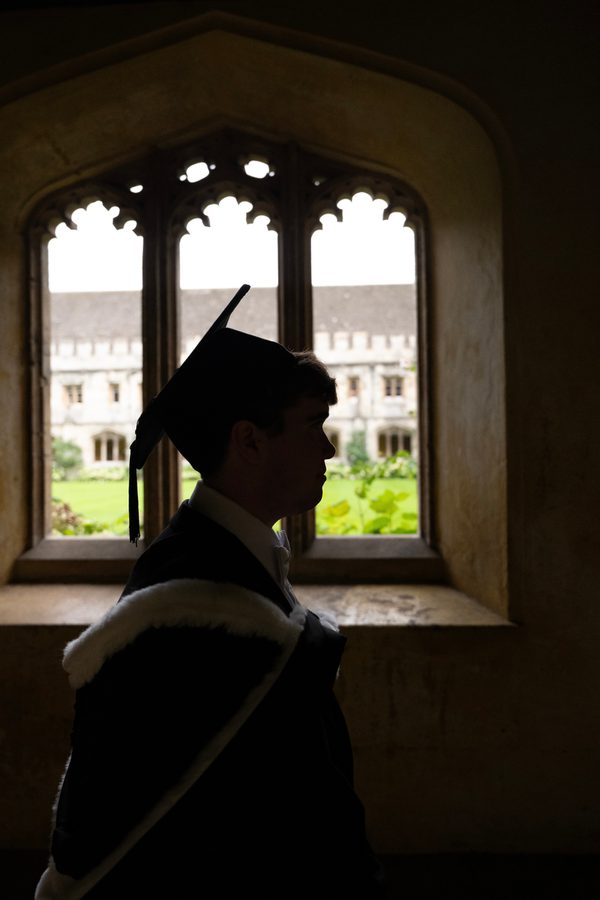
The Oxbridge Application Process: The Challenges, The Surprises and The Advice from Successful Applicants

By Charlotte Alcock – 16th November 2023
One of our incredible Zero Gravity members, Charlotte Alcock, conducted an interview with fellow state-educated Yorkshire students at her school who successfully bagged offers at Oxbridge colleges.
No matter who you are, applying to Oxford or Cambridge, two of the world’s most prestigious universities, is undoubtably a daunting process. For students who aren’t from a typical ‘Oxbridge background’, the prospect of applying can be even more intimidating. Hoping to put potential applicants’ minds at ease, state-educated Yorkshire students share everything they wish they knew before starting their application journey.
Which part of the application process did you find most challenging?
Rowan Lightfoot, Cambridge Law offer-holder: Deciding what to include in my application was pretty tricky. Due to the limited characters in the personal statement, I had to be selective about which super-curriculars and hobbies I put in. No matter how much I love Leeds United...there probably wasn't room for it in my application! Deciding a college seemed like a big challenge also, but after visiting a few I actually ended up deciding the night before applying, so I wouldn't worry too much about it. The interview nerves also proved tricky, especially right before. I had a tendency to speak way too fast and rush my answers when I tried to practice, so definitely slow down, and treat it as a conversation.
Freya Thornton, Cambridge Medicine offer-holder: I found the interviews most difficult; I am quite a reserved person, so I was nervous about talking to somebody without coming across as unsure of myself. All my interviews were online though, so I could carry them out in a comfortable and familiar setting.
Emily Ashwell, Oxford Biomedical Sciences offer-holder: For me, the hardest part was definitely preparing for and taking the BMAT. It was at the same time as mocks, so it was difficult to balance my time between revising and relearning a lot of GCSE Chemistry and Physics!
Martha Currie, Cambridge Geography offer-holder: I found writing my personal statement challenging because I wanted to fit so much into it, but the recommended idea is that you go into detail on a small number of things. It was quite hard to cover a range while going into detail, demonstrating the variety of your interests but also the depth of them.
Which part of the application process did you find most surprising?
Rowan Lightfoot: A couple of parts of the interview took me by surprise. I had two interviews, about half an hour each, and in neither did they ask me anything about my personal statement or even myself at all! This was unexpected as I thought they would want to know about reading I had done or activities I had undertaken, however they were more interested in how I responded to the tasks. All the interviewers were really friendly, and I actually found the online format very simple, however I know some colleges have now reverted to in-person interviewing. Despite what I've said, don't go in expecting to be shocked or surprised- just aim to show yourself and why you want to study your course at that specific university.
Freya Thornton: The thing I found most surprising was receiving offers. After my interviews I really had no idea how they went or even thought they had gone awfully. For my Cambridge interview I knew I had made a rather silly mistake on one of the questions, and was convinced that it would stop me from receiving an offer; I was still offered a place, so I would definitely say not to dwell on what you think could have gone better during the application process. Everybody makes mistakes and the interviewers know that.
Emily Ashwell: The most surprising part (other than the fact I got accepted) was probably the variety of people that get accepted. There’s definitely a ‘type’ that’s expected from Oxbridge but offer-holder days have proved to me that in reality there are people from so many different backgrounds!
Martha Currie: What I found most surprising would be the interview, as although I had researched the format it was a lot more informal than I expected and much more of a discussion. This was probably more enjoyable, and it allowed for my ideas to be developed more and go in directions that I did not expect but were interesting. The interviewers picked up on little things I mentioned and developed them further, pushing the boundaries of what you know.
What would be your top bit of advice for potential applicants?
Rowan Lightfoot: My biggest bits of advice would be to have a go, and not overthink things. If you think that going to Oxbridge may be for you, then I would totally encourage you to give it a shot. I can 100% say that I didn't expect to receive an offer, and in some ways this attitude helped me. I am so happy that I pushed myself to apply, and I would encourage anyone reading this to give it a try. Secondly, once a stage of the process is done, park it in your mind and try not to overthink it. For example, don't relive the interview over and over again, or over-check your personal statement. Have faith in yourself and take comfort in the fact that the stage is now over. Overthinking will make you feel anxious about a process which should be one from which you gain benefits!
Freya Thornton: My top bit of advice would be to not compare yourself to anybody else going through the process. There are always people on forums like The Student Room talking about how many hours of preparation they have done for their interviews but ultimately everyone is different and works differently. I would also say to not worry too much about what questions interviewers might ask you; I was not asked once why I wanted to study Medicine, and most of the questions were things I had never really thought about, particularly for my Cambridge interview - the interviewers want to see you think on your feet.
Emily Ashwell: My best advice would be to obviously work hard and prepare as much as you possibly can for any admissions tests and interviews – for example know your personal statement really well and do extra reading – but also to keep faith in yourself! I felt like the BMAT had gone terribly AND that I’d messed up my interview, but I still ended up with a place!
Martha Currie: My top bit of advice would be to prep by reading as much as you can of the current news, this allows you to make links to current events when discussing topics. Links in general are very important, the more you’ve read, the more links you can make, and this emphasises more complex thinking. When asked questions, don’t limit yourself to what you know on something specific, but instead, think about other things that can relate and this will help you answer questions you are not so sure on. Focus on what you do know, and using this to your advantage rather than what you don’t know.
This interview will hopefully demonstrate to any nervous potential applicants that although the Oxbridge application process has its challenges, it can also be a rewarding and exciting experience. Neither Oxford or Cambridge expects applicants to never make mistakes, or to be from a certain background, and instead look for highly motivated and capable individuals.















